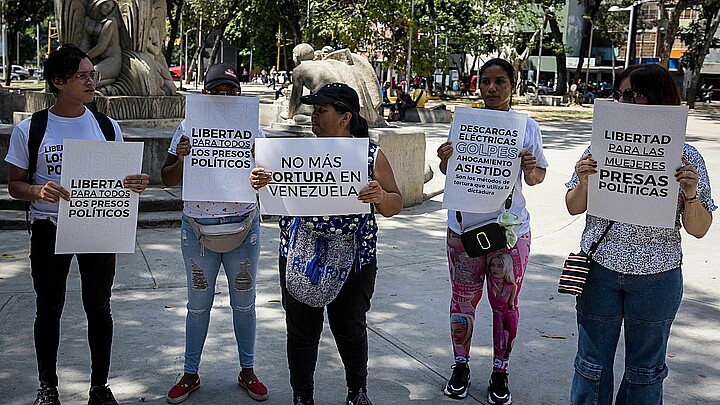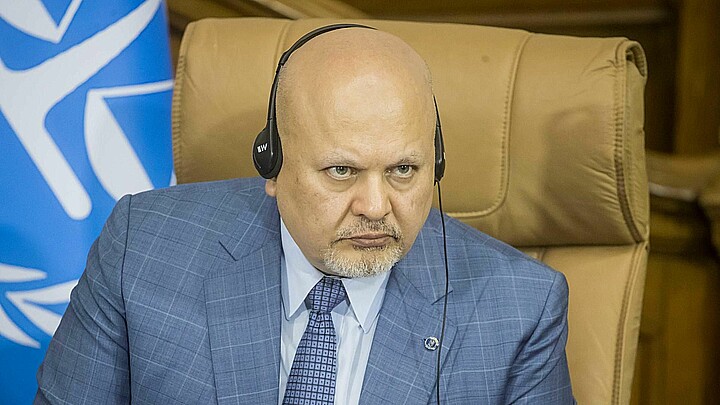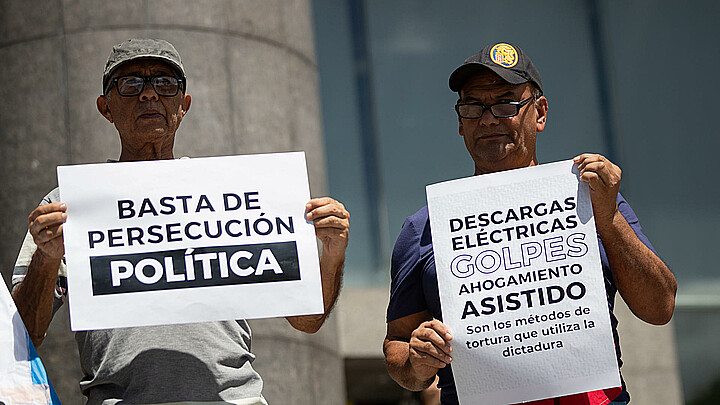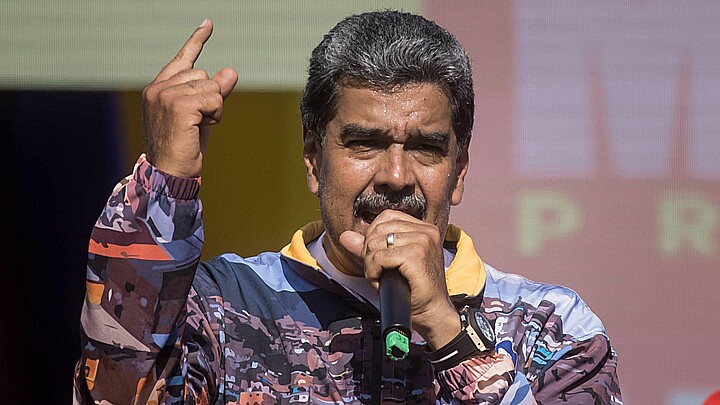Human Rights
U.S. condemns Maduro for refusing to grant safe passage to refugees at Argentine embassy in Caracas
State Department officials expressed concern about “continued harassment” of the embassy, which “endangers the safety of the mission and those who may be seeking temporary shelter”
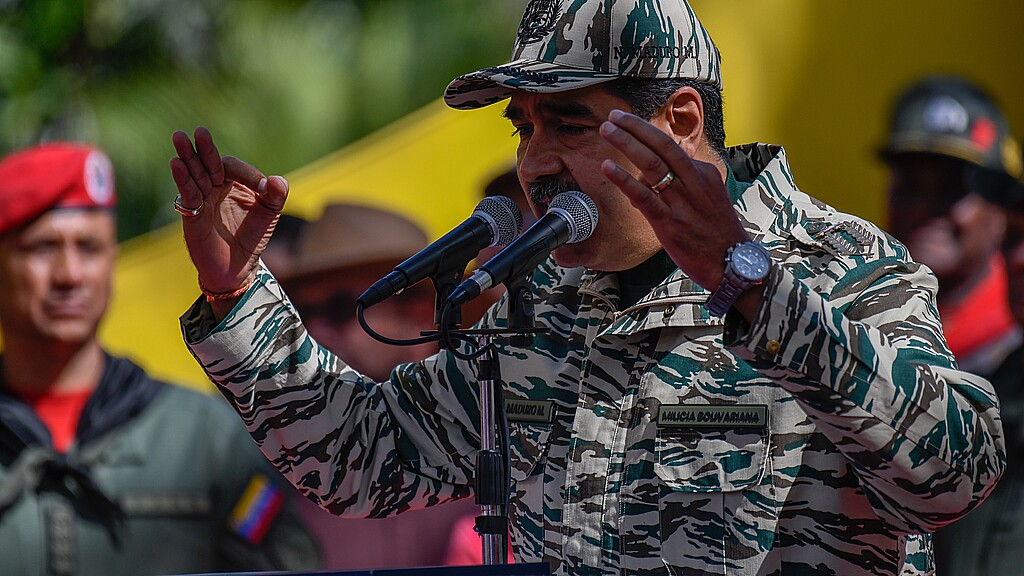
December 17, 2024 7:04am
Updated: December 17, 2024 7:04am
The United States condemned the Venezuelan Maduro regime for refusing to grant safe passage to people currently sheltered inside the Argentine embassy in Caracas.
U.S. State Department spokesman Matthew Miller said in a statement released last week emphasizing the obligation all nations have to respect the rights of diplomatic missions.
In addition, they expressed concern about “continued harassment” of the embassy, which “endangers the safety of the mission and of people who may be seeking temporary shelter.”
“The United States condemns in the strongest terms the continued refusal by Nicolás Maduro and his representatives to grant safe passage to the individuals sheltered inside the Embassy of the Republic of Argentina, currently under Brazilian custody, in Caracas, Venezuela,” the statement says.
“The United States takes very seriously the obligation under international law to respect the rights of diplomatic missions. The continued harassment endangers the safety of the mission and individuals who may be seeking temporary refuge. We call for Maduro and his representatives to stop issuing politically motivated arrest warrants for members of the democratic opposition and to guarantee safe conduct for those sheltered in the Argentine Embassy.”
This statement comes after opposition leader María Corina Machado denounced harassment against six members of her party who are taking refuge in the Argentine embassy in Caracas.
Machado warned that at least 20 security forces officials were outside the diplomatic headquarters and that there were threats of entry.
The Argentine government urged the Organization of American States (OAS) to pressure the regime to allow the safe departure of the four men and two women who have lived in the ambassador's residence since March.
“This siege constitutes a flagrant violation of the guarantees of security and protection that must be granted to asylum seekers, as stipulated in the 1954 Convention on Diplomatic Asylum and the Vienna Convention on Diplomatic Relations,” the OAS said in a Dec. 13 statement. “The intimidating presence of armed personnel, power and water cuts, as well as the interruption of food and water supplies, represent an imminent danger to the life and integrity of asylum seekers.”
The OAS also added that Venezuela’s use of weapons around the embassy violated the principles of international law.
“The deployment of repressive forces with assault weapons around the Argentine Embassy and the general harassment to which the diplomatic headquarters is being subjected reveals the worst aberrations of the regime and violates the fundamental principles of international law and human rights. The OAS urgently calls on the international community to stand in solidarity with the asylum seekers and demand respect for their rights and guarantees.”
Argentine Foreign Minister Gerardo Werthein stated that the Venezuelan government subjects them to a "strategy of physical exhaustion" and "psychological terror" through prolonged harassment.
"The Venezuelan government has not only denied them the safe conduct that would allow them to leave safely, but has adopted totally unacceptable harassment actions," Werhein stated during a session of the OAS Permanent Council.
"Asylum seekers are subjected to water cuts, interruptions in electricity supply, restrictions on the entry of food and the constant presence of security forces in the vicinity of the diplomatic headquarters."
Argentine President Javier Milei’s government allowed the six refugees to enter the compound after the dictatorship issued arrest warrants against them, accusing them of promoting alleged acts of violence to destabilize the country.
In August, Brazil accepted Argentina's request to protect the diplomatic complex in Caracas after the regime expelled its diplomats following the presidential elections on July 28.
A month later, Maduro and his allies revoked Brazil's authorization to guard the embassy, claiming they had evidence of the use of the facilities “for the planning of terrorist activities and assassination attempts.”
Brazil and Argentina have rejected those accusations.
Venezuela's prolonged political crisis worsened after the July 28 presidential elections, in which the regime-controlled National Electoral Council (CNE) proclaimed Maduro the winner without showing detailed voting results.
The opposition claimed the victory of Edmundo González Urrutia, reporting that they had 80% of the copies of the minutes that demonstrated his victory, which were disseminated on a website.
The NGO Foro Penal says that as of Dec. 2, there were 1,905 political prisoners in Venezuela: 1,863 adults and 42 minors.


